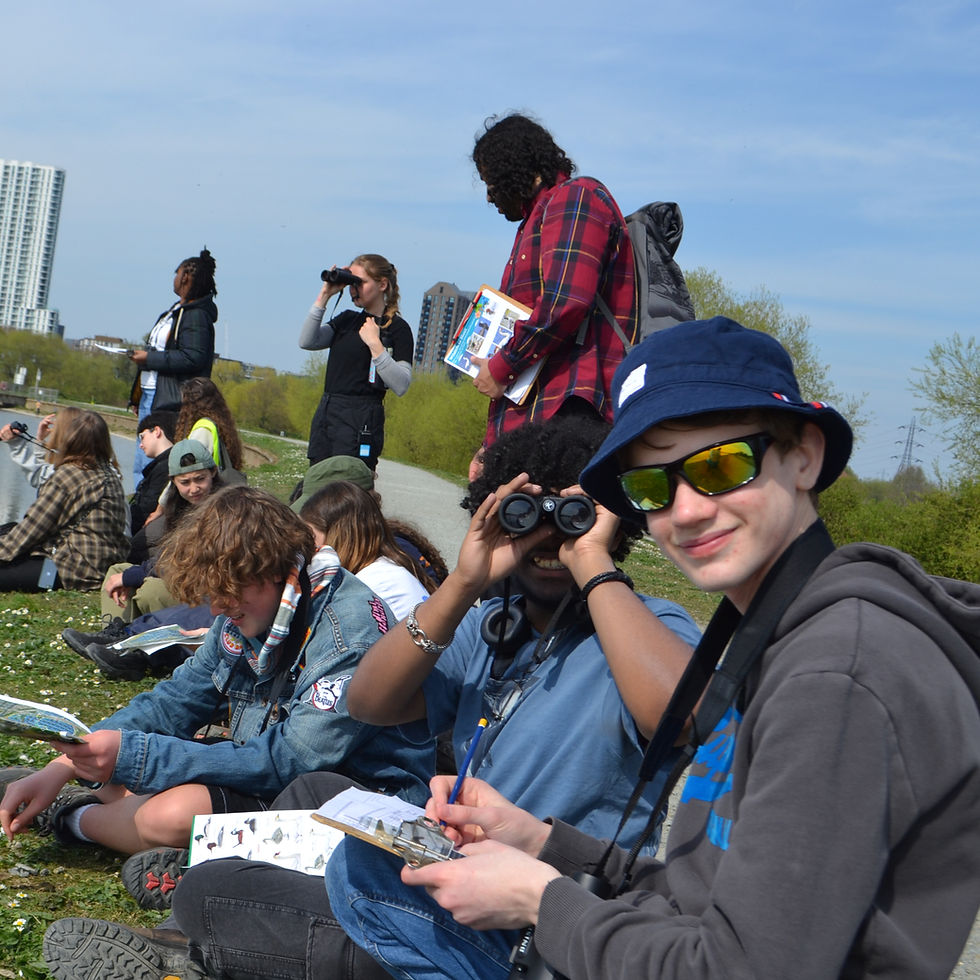How green fingers can help the planet and your mind
- Gabriel, AFC Ambassador
- Aug 11
- 2 min read
Gardening helps provide habitats in the form of shrubs and bushes for endangered species of insects such as bumblebees, providing a place for their numbers to grow. This allows them to continue pollinating and fight back against the population decline caused by pesticides and habitat destruction. These pollinators are necessary for the reproduction of plants, which in turn provide us with food. This habitat creation increases biodiversity all the way up the food chain by providing space for insect populations to recover, which can then be predated upon by larger species e.g. rodents and birds.

Plants suck carbon dioxide (CO2) out of the atmosphere and replace it with oxygen through photosynthesis, to put it simply. Gardens act as a sink for CO2, reducing a household’s carbon footprint. This is just one of many small ways that you and your family can have a positive impact towards climate change. Another is composting, which reduces the amount of rubbish going to landfills and sending methane, a greenhouse gas, into the atmosphere by sustainably utilising food waste to help grow plants and vegetables.
The value of growing your own food is often understated, and with International Youth Day upon us, it’s never been more important to talk about the benefits of gardening for young people. It is not only cheaper to grow your own food but healthier as well. This is because homegrown food isn't exposed to pesticides, so what you're getting is as natural as it can be.
Gardening isn't just good for your body though, but also your mind. It has been shown to provide several benefits to your mental health such as reducing stress and improving confidence. It also leaves you with a sense of achievement, seeing something grow from a seed to being on your table is very powerful. On top of that, gardening doesn't have to be a solitary hobby, you can do it with your friends and family, and it has been shown to improve social relationships.

Don't let not having a garden stop you from gardening. Window boxes are a fantastic way to grow food and pollinator plants in small spaces. You can buy affordable ones or even make your own from scrap wood, crates, or repurposed containers. Get creative, thatch, recycled bricks, or even an old drawer can be turned into a mini-green space with a bit of care. You can also make use of communal allotments, these have the added bonus of instilling and strengthening a sense of community pride and connection.
Gardening is a brilliant opportunity for young people to reconnect with nature. Whether it’s a small pot of herbs on a windowsill or a vegetable patch behind your house, growing something from nothing is incredibly satisfying. Every little space counts. And by doing so, you’re not just feeding yourself, but also feeding the bees, butterflies, and moving towards a better, greener future.
Thank you for reading,
Gabriel.








Комментарии